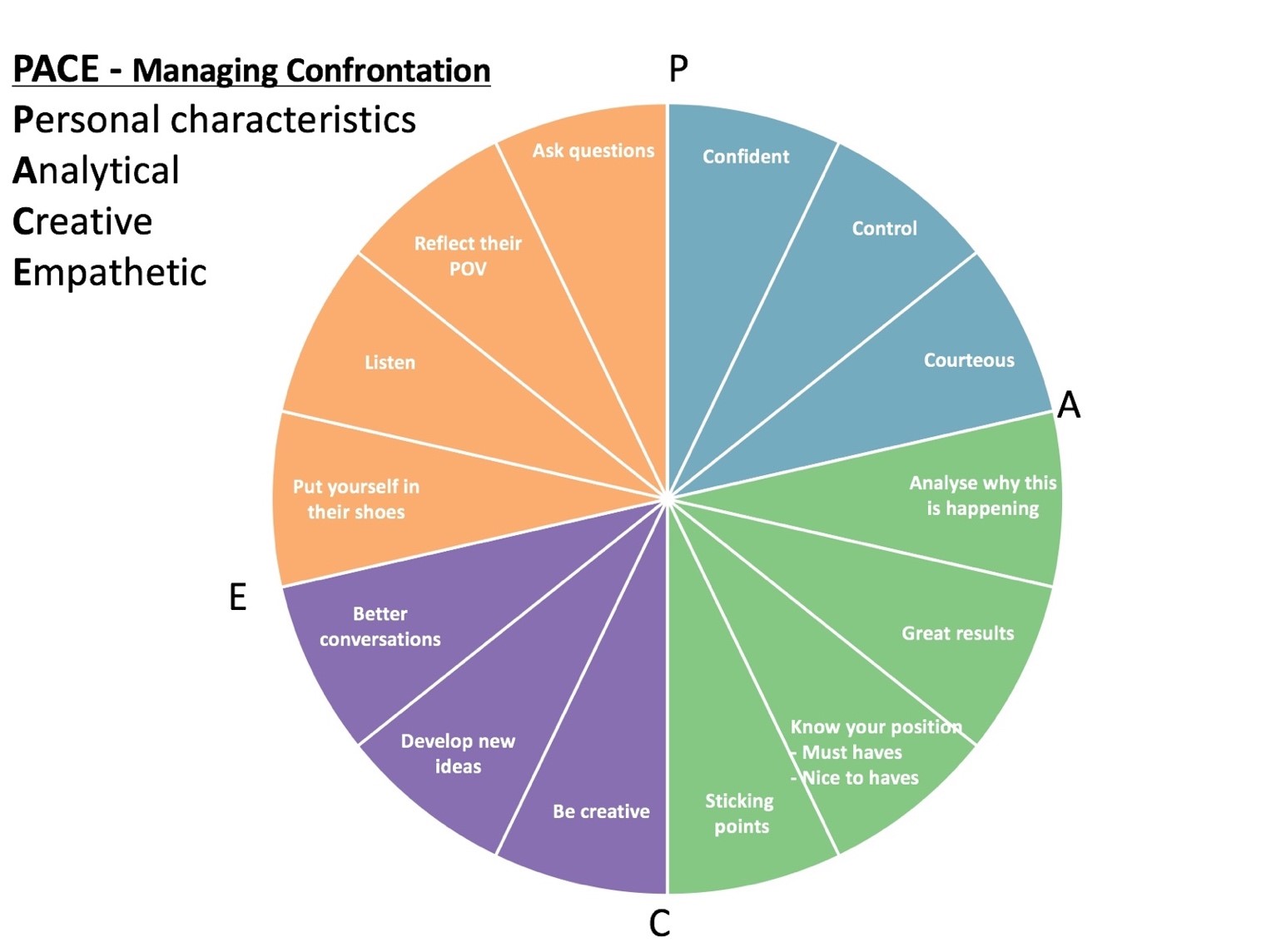
 Toxic and confrontational business relationships can be a real barrier to moving up in your career, whether you are at the start of your working life, or if you are already a Manager. In fact, bad relationships is frequently cited in exit interviews as the reason people leave their job. So learning some techniques to manage difficult situations or difficult people early in your career will stand you in very good stead.
Toxic and confrontational business relationships can be a real barrier to moving up in your career, whether you are at the start of your working life, or if you are already a Manager. In fact, bad relationships is frequently cited in exit interviews as the reason people leave their job. So learning some techniques to manage difficult situations or difficult people early in your career will stand you in very good stead.
People often respond to confrontation by the three “F”s – Fight , Flight or Freeze, which is inbred in us all. But there are alternatives. Let’s look at how professional coaches work with their clients to help manage these tricky situations.
The first stop for Coaches and their clients is to examine whether the client’s behaviour is driving the confrontation, by demonstrating high levels of aggression or timidity.
Coaches ask their clients to put themselves into the other person’s shoes, to see things from different perspectives using Emotional Intelligence coaching techniques. (http://www.huntwoodassociates.com/Coaching)
You can try this out. Firstly, a bit of background in straightforward terms. Emotional Intelligence means the capacity to be aware of, control and express emotions and to handle relationships with others empathetically and with good judgement. Sometimes called EQ, it is something you can learn and develop and is often seen as the key to career success. Improving your EQ will build empathy, self awareness and also awareness of others and will help you deal with difficult situations and people.
So next time you are struggling with a difficult person, ask yourself what are they thinking, what are they feeling and try and put yourself in their shoes. This perspective provides you with a different point of view and often some ideas on ways to dissolve the confrontation.
Huntwood coaches also use MBTI.
MBTI (Myers Briggs) is the world’s most popular psychometric providing an indication on how you focus your attention; how you take in information and find out about things; how you make decisions and whether you are a structured person with a plan or prefer to be spontaneous and flexible. An MBTI workshop will help you understand why people are different – we call it the “blimey” factor!
So for instance, if you find out information by looking at the detail, you may not be taking into account the fact that someone else understands information by looking at the big picture and likes to understand the concept rather than diving into the detail.
Recently I was working with an ENTP (likes big picture and flexible/last minute) boss who frequently asked his ESTJ (detail and planful /structured) brand manager for a quick overview of projects, giving her an hour deadline. The boss thought that this was really helpful as expectations of input would be a few bullet points. That was agony for the S (and the J) person, as their profile means they want to refine the information and provide detail. We sorted it out, when they each got under the skin of the other person’s way of working.
So what can you do to manage confrontation? You can learn more about EQ and MBTI, they are tools that will always be relevant to managing yourself and business relationships throughout your career.
And you can also use our PACE model, which groups ideas and recommendations into four areas:

P – personal characteristics and behaviours you can employ to stop confrontation or help to de-escalate conflict. Be confident and demonstrate your self control through your courtesy.
A – analytical and logical skills that build a picture of the underlying causes of confrontation and signpost the way forward. Try and minimise your emotional responses, such as getting cross or upset by the other persons’ behaviour . Think logically and get under the skin of the reasons for the confrontation and the sticking points. Be really clear about what you want, why it matters. And very importantly think about how you would benefit if the conflict were resolved.
C –creativity to change the thinking and perspectives about situations and relationships. Develop some new ideas and thinking about the confrontation, the stakeholders and the situation. Activate your left and right brain (left brain is where for logical and rational thinking, right brain is the creative side) and have better conversations.
E – empathy is the underlying principle to gain a new perspective on the confrontation and build your own flexibility. Listen actively and ask great questions to build up a picture of their point of view (POV). Put yourself in their shoes.
It is helpful to remember that confrontation can have positive effects. We often need to address rather than avoid the person or situation, otherwise tension casts a big shadow. And sometimes when passions run high, great ideas emerge. Being straight enhances many situations, and it is always good to have a conversation.
Try the PACE tips. They are useful at the start of your career, or when you move into a new company and want to ensure a smooth start.
They can help improve toxic business relationships, help defuse confrontation and conflict, and reduce your dependence on the 3 Fs.
TED RESOURCES
For a different perspective, for people who are terrified of conflict: Conflict – Use It, Don’t Defuse It | CrisMarie Campbell & Susan Clarke. They talk conflict being terrifying an balance that with a the perils of avoiding conflict. They recommend demonstrating Curiosity and Vulnerability.
Dana Caspersen offers the same advice: Conflict is a place of possibility | Dana Caspersen | TEDxHackneyWomen
Clair Canfield discusses how we get trapped in justification when manageing conflict The beauty of conflict | Clair Canfield | TEDxUSU

Lollie Tuckey is an experienced coach with a strong business and psychology background. Known for her positive approach and energy, she puts her great mix of skills to work for every client.
Huntwood Associates develop thinking and behaviours in companies. If you'd like to find out more about Huntwood, please visit www.huntwoodassociates.com





